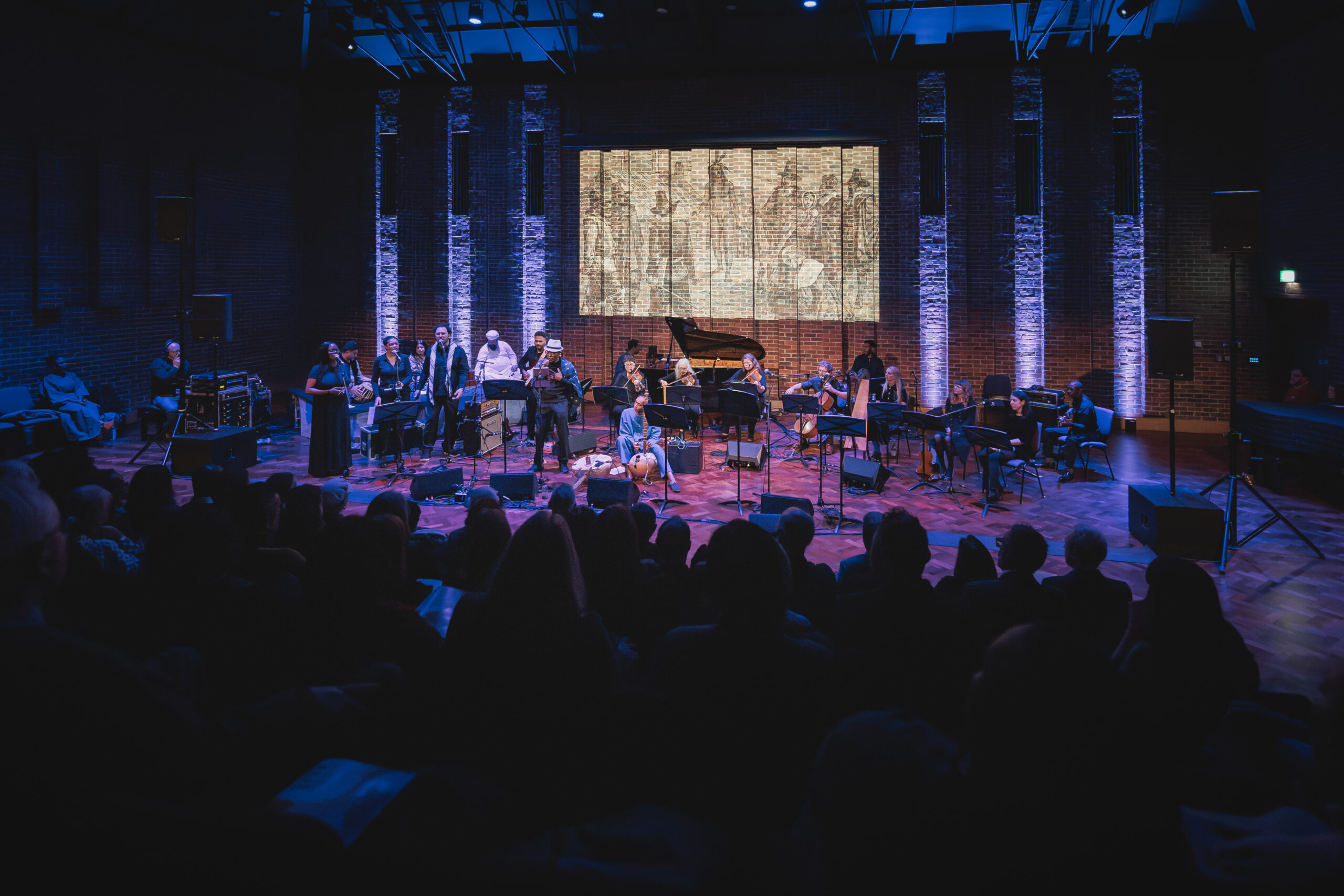
Voyages of the Heart Ensemble at Turner Sims concert hall in Southampton
Photo: Nosa Malcolm
Don’t stop the music
The UK’s concert halls are a valuable economic resource we need to protect, says Kevin Appleby, chair of the British Association of Concert Halls.
Much has been said about the positive effects music and, by association, music venues have on wellbeing and mental health. There is clear scientific evidence proving what people have known for years to be true.
But there has been less clear and tangible data to prove the economic and cultural impact concert halls have on the UK economy. Until now, that is.
Our latest report, published by BACH – the British Association of Concert Halls – shows that our network of more than 40 concert halls across the UK and the Republic of Ireland contributed more than £328m to the UK economy last year. And between them, they welcomed audiences of over six million people.
These findings from our first annual survey reveal the significant cultural and economic contribution of these vital venues.
Power in numbers
The numbers speak for themselves. From 2023 to 2024, for every £1 of the total £43m in public funding, BACH member concert halls generated £4.48 in ticket income, underscoring their value as both cultural hubs and economic drivers. Collectively, these venues hosted over 9,000 concerts and events.
This return, together with the £233m in total income reported by the halls (up by 35% since 2021-2022), clearly demonstrate how UK concert halls are powering our local economies by attracting audiences, employing staff and stimulating spending in surrounding businesses.
Busting myths and boosting access
The survey also challenges some misconceptions about orchestral concerts – that they’re waning in popularity and only attract a narrow set of audiences. This couldn’t be further from the truth.
Classical and orchestral music accounts for a third of all concerts covered by the report. With average ticket prices starting below £10 and most venues running schemes offering tickets to under-30s for as little as £5, venues are fostering a new generation of classical music enthusiasts. Over 100,000 young people took advantage of these schemes in the past year.
BACH members work hard to encourage people to attend who may not otherwise have the opportunity. Many of them run schools’ memberships or ‘partner schools’ programmes, where free or discounted tickets are offered. Most members also run a multi-buy or subscription scheme to encourage audiences to attend classical/orchestral concerts more frequently.
Some also run schemes for local residents in ‘qualifying’ postcodes to buy tickets for a fixed low price (as low as £3 in some cases) or attend free lunchtime concerts. At least 17,000 tickets were issued under such schemes. Concessionary tickets including carer tickets, benefit recipients, children, students and disabled people, are also common.
In fact, of the total six million tickets from the last year, over 300,000 were complimentary and around 92,500 were for free events.
So what’s the problem?
With the Covid years now sufficiently behind us, most venues have reported audience levels climbing again and people eager to experience and enjoy the broad artistic programmes on offer.
Unlike commercially-run entertainment venues, BACH’s members generally operate a more civic-led model, ensuring a commitment to public benefit rather than just profit. Some of them are run by arts charities, some are run by universities, and they usually run integrated community engagement alongside their programmes. Collectively, they bring the best artists, ensembles and orchestras from all over the world to towns and cities up and down the country.
However, like every other sector in the arts and cultural industry, our concert halls are currently grappling with rising performance, supplier, energy and workforce costs at the same time public investment is shrinking.
In the last few years, they have done everything they can to reduce their costs and operate at maximum efficiency but, sadly, they are now having to make difficult commercial decisions. Some have been forced to reduce or even cut their orchestral programmes. It would be a disaster if we were to lose these.
The findings in this report underline the critical importance of continuing to protect this vital cultural ecosystem and ensure concert venues can keep on presenting diverse, world-class and culturally enriching artistic programmes from which we all benefit.
Join the Discussion
You must be logged in to post a comment.